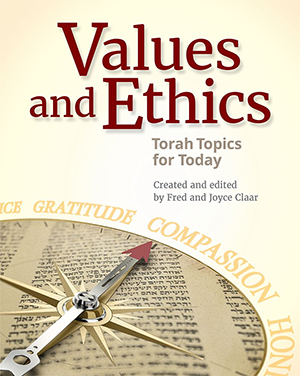RE-EH —
All parents try to discipline their children. They have different methods, but generally parents are trying to influence their children to be moral and to behave appropriately. Imposing any kind of discipline rests on the assumption that children have free will. They can choose what is good and reap rewards, or choose what is bad and suffer the consequences.
In this week’s Torah portion, Re-eh, Moses tells his people: “See, I am setting before you today a blessing and a curse”. The people have a choice: they can obey the commandments and reap blessings, or they can fail to listen to the commandments and suffer. It is assumed by the Torah that people have freedom to choose and direct their own actions even when it is difficult to control their impulses.
Children have very powerful impulses. They want to have fun, they want to test limits, they want to feel that they are in control. They aren’t particularly interested in self-control. That is why a system of rewards and consequences is particularly important to shape children’s behavior over time. But how can parents figure out the right amount of discipline and the most effective methods? It’s important to find a balance between being overly strict and too permissive. Teach children to take responsibility for their own actions. Allow them to problem solve with you.
Be consistent in your responses to them. And, most importantly, allow them the freedom to make their own mistakes, the freedom that allows them to discover that their own actions lead them to reward or consequence. As they get older, their sense of self-discipline will grow, and hopefully they won’t need an external system of reward and punishment.
TALK TO YOUR KIDS about what it means to have free will.
CONNECT TO THEIR LIVES:
- What kinds of choices are hard for you?
- What have you learned from making a poor choice?
- What helps you to make the best choices?
- How do you respond when consequences do not fit the deed?
By Rabbi Dianne Cohler-Esses
Values & Ethics—Through a Jewish Lens is created by Fred and Joyce Claar to bring the wisdom of Judaism into family discussions.






